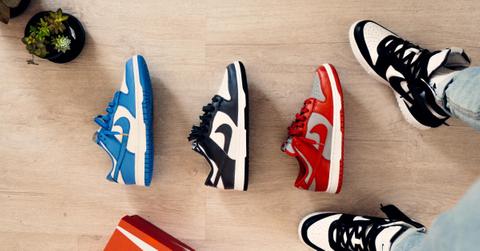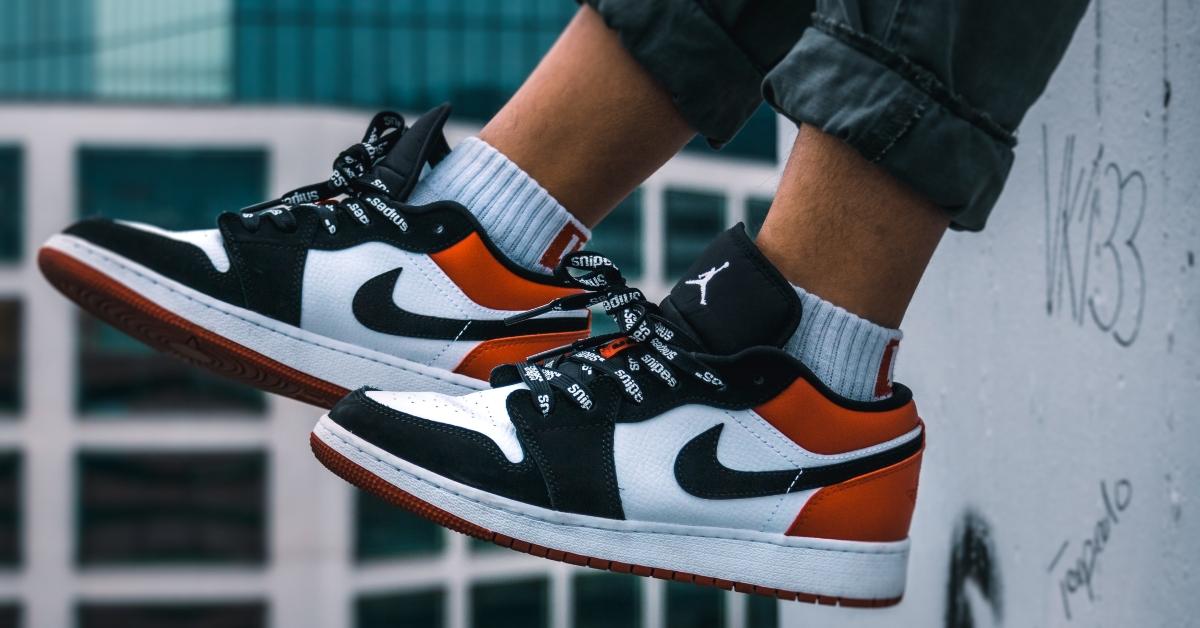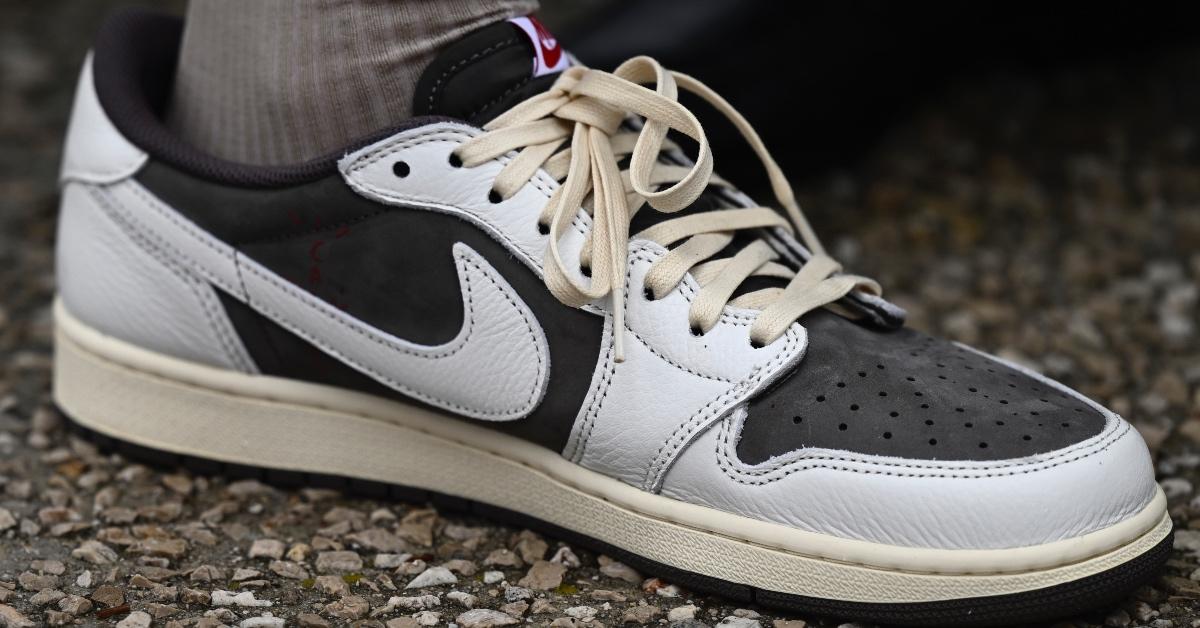"Just Do It," but at What Cost? Exploring the Complex History of Nike's Ethics
Published Aug. 7 2023, 2:11 p.m. ET

It's amazing how a simple logo resembling the flick of a pen, three-quarters of a boomerang, and winged eyeliner can solidify itself as an Americana staple over the course of 60 years. You know, the iconic Nike swoosh. Carolyn Davidson's sleek design has become a symbol of strength, dedication, and, well, mass consumerism.
Home to Nike, Jordan, and Converse brands, the success of NIKE, Inc. — founded by Phil Knight and Bill Bowerman — is undeniable. But, like many uber-profitable mainstream apparel corporations, Nike has landed itself in hot water numerous times.
Nike's behind-the-scenes practices have been repeatedly scrutinized and criticized by the media, as poisonous whisperings of sweatshops and forced labor have haunted the brand for decades.
Despite its commendable mission to "bring inspiration and innovation to every athlete in the world," Nike's cloudy reputation may complicate a conscious consumer's desire to "just do it" in 2023. So, all in all, is Nike ethical? Let's get into it.

Is Nike ethical? It's a loaded question.
We're neither here to judge your athleisure collection nor bash Nike. We are, however, here to shine a light on realities the average consumer may have turned a blind eye to in the past.
Like those of many modern corporations, Nike's website is brimming with progressive brags and diversity claims.
"With a global footprint, culture of innovation and team-first mentality, we take action to create a future of continual progress for athletes, sport, and our world," the website reads. Below that, the brand relays that "43 percent of Nike's leadership positions are held by women," "78 percent renewable energy in owned or operated facilities, up from 48 percent in FY20," and "$97.7 million [was] invested in NIKE, Inc.'s fiscal year 2021 to drive positive impact in communities around the world."

A denser brag sheet lives on the Impact page. It's there that Nike discusses its grand efforts in areas like "diversity, equity, and inclusion," "responsible sourcing," "empowering communities," and "protecting the planet."
Regarding diversity stats, Nike discloses that "51 percent of NIKE, Inc.'s global corporate workforce are women," "45 percent of Vice Presidents [are] credentialed in Inclusive Leadership education," and "38.8 percent of [its] U.S. corporate workforce are U.S. racial and ethnic minorities" as of fiscal year 2022.
Nike leaders have participated in a "holistic diversity and inclusion curriculum," employees and eligible dependents are gifted access to 20 free therapy sessions annually, and in 2020, Nike and Michael Jordan pledged to donate $140 million "over 10 years to invest in and support organizations focused on economic empowerment, education, and social justice to address racial inequality for Black Americans."
Internal programs like Nike N7: Footprint Summit, Serena Williams Design Crew, and Women In Nike (WIN) further encourage, promote, and ensure diversity and inclusion.
Nike's treatment of women and employees of color has been less than desirable.
In 2018, Nike announced that it would give raises to more than 7,000 employees and alter its compensation practices after an internal review. Though employees of all genders received salary adjustments, the announcement followed an informal survey spread by a group of women "that examined disparities in pay and advancement," per CNBC.
CEO Mark Parker later apologized to employees for fostering a toxic corporate culture and disregarding certain conduct complaints.
Said surveys are included in the sexual harassment and gender discrimination lawsuit against Nike, which encases a whopping 5,000 pages of records, as reported by The Guardian in 2022. Sexist perspectives, corporate bullying, under-the-table fellatio, alleged demands for women to "dress sexier," and mocking of female empowerment are just a few of the dirty details.
In 2019, Olympic runners and women of color Alysia Montaño and Allyson Felix released bombshell New York Times op-eds. Both women discussed Nike's mistreatment of pregnant athletes at length and the pay cuts they endured while "with child." As a result, Montaño and Felix left the sneaker giant for competitor brands.
By 2025, Nike has pledged to maintain 100 percent pay equity throughout its employee network and invest $125 million in supporting businesses that strive to “level the playing field” and tackle racial inequalities. Plus, the company is aiming to boast 50 percent representation of women in its "global corporate workforce," 45 percent representation of women in "leadership positions," and 35 percent representation of "racial and ethnic minorities in its U.S. workforce," as detailed by CNBC.
Questions regarding supply chain ethics have plagued Nike since the early '90s.
Concerning Nike's connection to forced labor, child labor, and sweatshops, problems arose when the company advised contractors to move to Indonesia, China, and Vietnam after a price jump in Korea and Taiwan, per a 2013 Insider piece.
Things came to a head in 1991 when anti-sweatshop campaigner and activist Jeff Ballinger published a report highlighting the unethical wages and working conditions in Indonesia.
In 1992, Ballinger published a shocking exposé in Harper's titled “The New Free-Trade Heel: Nike's profits jump on the backs of Asian workers," which showcased the experiences of a woman named Sadisha. The piece disclosed that she earned just 14 cents an hour, a 7.5 hour workday making her $1.03.
This was followed by protests at the Barcelona Olympics in 1992, a 1993 CBS interview with Nike factory employees, and a Ballinger's labor rights NGO Press For Change.
Despite its efforts to improve factory worker conditions in 1996 (a special department was added), it wasn't looking good for Nike. More reports emerged, unveiling poor treatment of women workers in Vietnam and that infamous 1996 Life magazine image of a 12-year-old Pakistani boy stitching a Nike soccer ball.
In 1998, former CEO Phil Knight addressed the scandals, signaling a turning point. "The Nike product has become synonymous with slave wages, forced overtime, and arbitrary abuse," he said. "I truly believe the American consumer doesn't want to buy products made under abusive conditions."
The company introduced the Fair Labor Association in 1999, got serious about audits and public reports in the 2000s, and continues to strive for transparency and ethical working conditions in the present day. In 2015, Morgan Stanley deemed Nike "the most sustainable apparel and footwear company in North America for environmental and social performance, including its labor record," per Good on You.
Sadly, years of Nike rebranding hit a snag in 2017, as Judy Gearhart of the International Labor Rights Forum reported that the company had dismissed its commitment to the Worker Rights Consortium (WRC). Specifically, she detailed that it "[blocked] respected labor rights experts from assessing its supplier factories."
Nike's website features a lengthy "Statement on Forced Labor, Human Trafficking, and Modern Slavery for Fiscal Year 2022," declaring that it "supports human rights as defined by the Universal Declaration of Human Rights."
"We’re doubling down on pre-competitive collaborations with suppliers, competitors, NGOs, and governments to shift the status quo in the global supply chain," Nike's Responsible Sourcing page reads.
In March 2023, Reuters reported that activist investor and shareholder advocacy group Tulipshare questioned Nike's transparency surrounding working conditions, specifically challenging the Air Max 90 brand to clearly address the risk of Uyghur forced labor. It's important to note that Nike has asserted that it does not source from the Xinjiang region of China.
The outlet went on to reveal that 20 international garment worker unions and two labor rights groups filed a joint complaint against Nike with the U.S. State Department in February 2023. The coalition argued the company "violated guidelines from the Organization for Economic Co-operation and Development by triggering layoffs and pay cuts throughout the COVID-19 pandemic."
Is Nike sustainable?
For Nike, sustainability involves "better materials" and "exploring regenerative solutions."
In 2021, the company introduced the Nike Refurbished program, which appeals to both eco-conscious shoppers and sneakerheads looking to avoid the horrors of the resell market. In hopes of giving shoes a second life, the program puts eligible products in one of three categories: Like New, Gently Worn, or Slightly Imperfect (the latter of which may include manufacturing flaws).
If items are deemed unsellable, Nike promises to donate or recycle the kicks via Nike Grind — a global recycling and circularity program that's been around since the early '90s.
From a beefy Chemistry Playbook & Restricted Substances List (the PDF includes information on PFAS reduction, neoprene alternatives, air emissions, et cetera) to a page dedicated to water conservation practices (which highlights the brand's water restoration projects and its work to control microfibres and microparticles in textile wastewater), Nike's site positions itself as a beacon of hope.
In terms of stats, Nike boasts a "64 percent reduction of GHG emissions in [its] owned or operated facilities," "[over] 182,000 metric tons of emissions reduced by using 39 percent environmentally preferred materials in our products," and "97 percent waste diverted from landfills."
With brags about pushing for circularity before it was cool and a utopian zero-waste vision, Nike appears fairly responsible.
In 2023, Nike was accused of "greenwashing" in a class action lawsuit.
Unfortunately, news of a class action "greenwashing" lawsuit against Nike hit the internet in May 2023, souring the brand's image.
According to a ClassAction.org article, the 47-page lawsuit alleges that Nike has illegally categorized a large handful of its products as "sustainable," manipulating eco-conscious consumers in the process. Though these products are linked to Nike's planet-loving "Move to Zero" initiative, the lawsuit claims they are made from "non-biodegradable plastic-based materials."
"Of the 2,452 Nike 'Sustainability' Collection Products … only 239 products are actually made with any recycled materials," the lawsuit states.
The items actually made with recycled materials primarily consist of recycled polyester and recycled nylon — aka "still plastic." The lawsuit points to the microplastic pollution associated with these materials, the weakness of recycled polyester fibers, and their tendency to end up in landfills, and Nike's violation of the Federal Trade Commission's "Green Guides."
The complete list of greenwashed Nike products can be found here.
It seems as though the August 7, 2023, release of the Nike Alpha Force Low X Billie Eilish — which swaps out petroleum-based ink for a black pigment made of algae waste — is meant to distract. A fresh collaboration with a Gen Z superstar and a first-of-its-kind bioscience startup? Suddenly, that lawsuit is like a distant memory. Cha-ching.
Sure, the reliable sports apparel and equipment corporation has made some strides in recent years, but perhaps it's time Nike revisits its own collection of accountability-focused slogans.